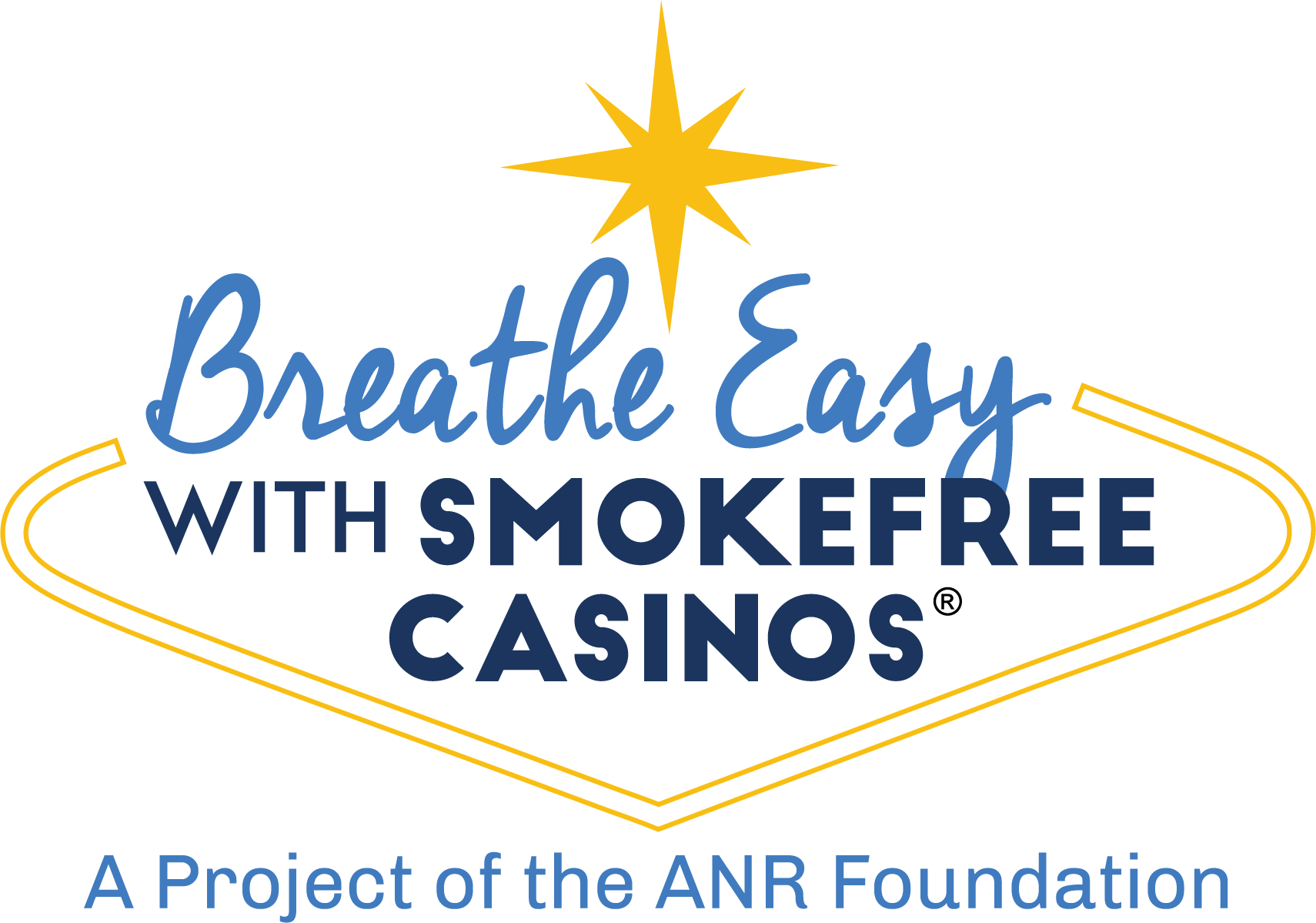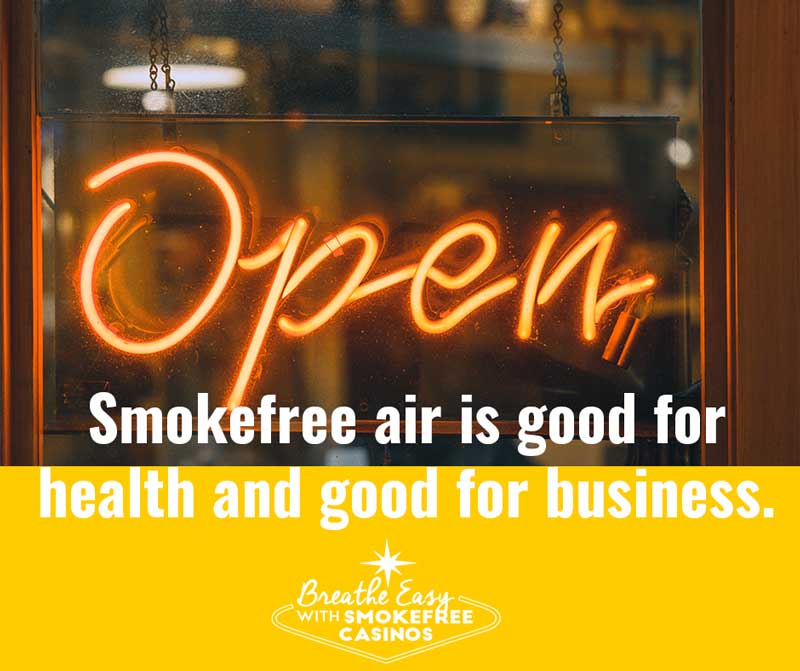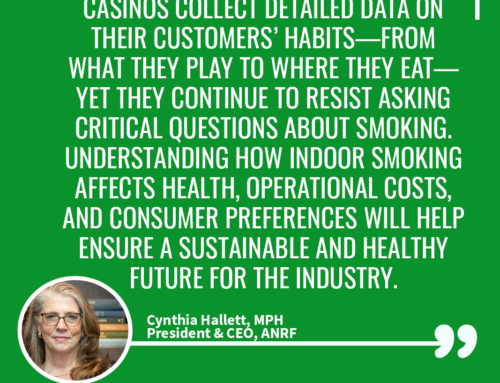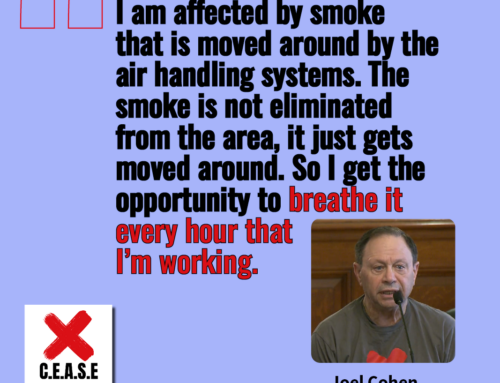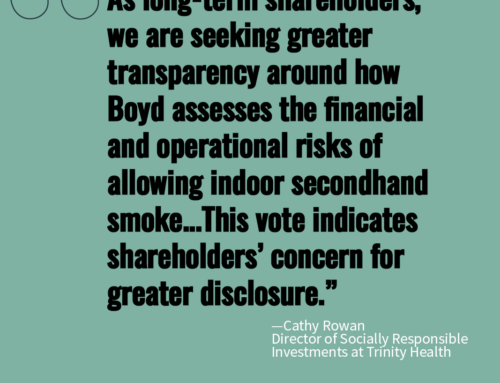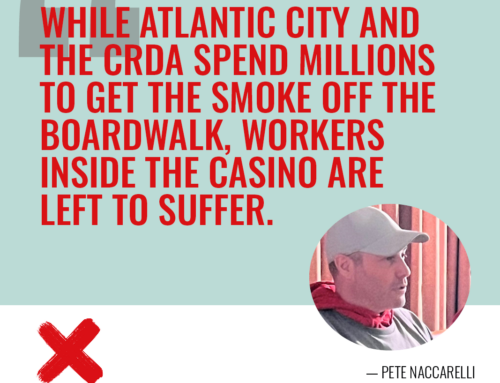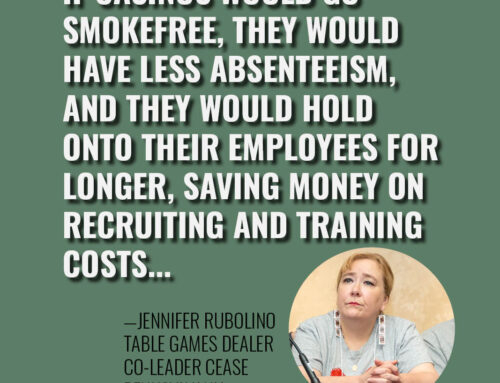This article originally appeared in CDC Gaming Reports and is reposted here with permission.
125 casinos hop aboard no-smoking train, at least for now
Mark Gruetze, CDC Gaming Reports · July 12, 2020 at 4:44 am
More than 125 casinos and dozens of other gaming sites across the U.S. that allowed smoking in pre-COVID days are now nonsmoking. That raises a question: Will it last?
Some casinos plan to lift their ban when face masks or other coronavirus safety measures are no longer required. Others see this as a good time to test whether one of the last bastions of legalized smoking in a public space can give up the habit. Advocates for smoke-free gaming say the industry sends a mixed message about protecting customers and employees if it establishes extensive coronavirus safeguards, then allows the hazards of secondhand smoke.
How gamblers and the industry accept smoke-free play as a public-health measure could help determine whether more casinos join the vast majority of workplaces and businesses where smoking is prohibited.
“The casino industry for years and years has worried about it,” said Conrad Granito, general manager of Muckleshoot Casino in Auburn, Washington. “You’re definitely seeing changes, but there’s still a core group (of gamblers who smoke).”
A list compiled by the American Non-Smokers’ Rights Foundation shows tribal and commercial casinos and slot facilities in 25 states have banned smoking as they reopen from their coronavirus closures.
New Jersey banned smoking in its reopened casinos, as did the Michigan Gaming Control Board for the three Detroit casinos. Pennsylvania, where most casinos reopened in late June with smoking allowed, reversed course just before the Fourth of July. Mohegan Sun in Connecticut, Seneca casinos in New York, Pechanga Casino in California, Harrah’s Cherokee in North Carolina, and Cherokee Nation casinos in Oklahoma reopened with their own smoking bans.
Several states, including Illinois, Ohio, New York, Massachusetts, and Maryland, never allowed smoking in commercial casinos; some localities, such as New Orleans and Baton Rouge, extended smoking bans to casinos before the pandemic hit.
New Jersey’s casinos reopened just before the Fourth of July weekend with a state-imposed smoking ban; previously, smoking was allowed on 25 percent of the gaming floor. Governor Phil Murphy’s executive order announcing the ban noted a state requirement that everyone at an indoor business wear a face mask; thus, allowing smoking in casinos “would entail individuals removing their masks indoors.”
Pennsylvania and Michigan gaming regulators took a similar reading of their states’ requirements for face masks in public.
Mary Kay Bean, spokesperson for the Michigan Gaming Control Board, said the agency considered information from the Centers for Disease Control and Prevention in Atlanta, the Nevada Gaming Control Board, and the National Indian Gaming Commission before deciding on its standards.
“Under our reopening guidelines, smoking is prohibited on the casino floor, but permitted in an alternative area (e.g., an outside deck or patio),” she said in an email. “The guidelines also require all patrons to wear masks covering nose and mouth and to do so continuously while in the casino unless eating or drinking. The smoking ban was included, because a patron would need to remove his or her mask to smoke.”
Wind River Casino in Bethlehem, Penn., voluntarily banned smoking before reopening. Other Pennsylvania casinos switched to nonsmoking after the Gaming Control Board determined the state’s recently expanded face-mask policy had no exception for smokers, board spokesman Doug Harbach said. Casinos may offer smoking in an outside area that provides adequate social distancing, he added.
Nevada also requires casino customers to wear face masks, but Gov. Steve Sisolak’s office did not respond to requests for clarification about the rule’s effect on smoking. Caesars Entertainment Corp., which announced a face-mask requirement for its casinos nationwide on the same day Sisolak issued the Nevada policy, said customers could lift their masks to drink or smoke.
The CDC says current and former smokers have an increased risk of severe illness from COVID-19, as do people with conditions such as asthma, high blood pressure, Type 2 diabetes, and obesity.
Health experts say respiratory droplets expelled when people talk, cough, sneeze, sing, yell, or even breathe are the primary source of coronavirus transmission. Many scientists say the virus could hover in the air much longer than previously thought.
“Pulling down masks to blow smoke and respiratory droplets in hospitality venues adds health risk and sends a confusing message on safety,” said Bronson Frick, advocacy director for the American Nonsmokers’ Rights Foundation. “With challenges to ramping up COVID contact tracing and testing in casinos, prevention measures are vital.” He said smoke-free indoor air also maximizes casinos’ investment in deep cleaning, reduces absenteeism, and “makes clear that safety is a priority.”
Mohegan Sun banned smoking “as part of our robust safety measures” against the novel coronavirus, said Jeff Hamilton, president and general manager, in a statement. Additional steps include noninvasive temperature scans at all entrances, a cutting-edge air-handler UV-lighting system, Plexiglas dividers, and reduced slot machine and table game seating.
Muckleshoot Casino banned smoking as one of several safeguards upon reopening May 27, but Granito said the tribe began allowing it in mid-June on about 30 percent of the 100,000-square-foot casino; that’s half of the previous smoking area. Muckleshoot operates under two gaming licenses, one for an area that allows smoking and one that doesn’t.
Granito said the industry’s concern about a permanent smoking ban remains the potential loss of revenue, although the reported decreases at casinos that switched pre-pandemic are not as steep as they were many years ago. He said he knows some smokers who prefer to play in the casino’s nonsmoking section, head to the smoking section to light up, then return to play in the nonsmoking area.
Skyelar Perkins, corporate senior director of slot operations for Choctaw Casinos & Resorts in Oklahoma, said the coronavirus closures interrupted a test of a voluntary smoking ban at one of the tribe’s slot facilities. The test began in December 2019, part of a standard evaluation of whether “certain things still make sense,” he said. “One of the things that always comes up is smoking and nonsmoking,” he continued. “It’s always a big topic in the industry.”
Less than 90 days from the test’s start, before any definitive findings, the tribe closed its casinos and slot plazas because of coronavirus. The trial expanded when the gaming facilities began reopening in late May.
The tribe made all 15 of its convenience-store slot facilities, known as Casino Toos, nonsmoking, along with half of its flagship casino-resort in Durant, Okla., about an hour north of Dallas. Because the resort was built in phases, the smoking and nonsmoking areas are on different ventilation systems and are totally separated, Perkins said.
The Choctaws have no timeline for deciding whether or not to make a long-term change to their casino smoking policies, Perkins said. “It’s kind of hard to gauge stuff right now, because the consumer patterns aren’t anything like what they were.” As competition and other facets of life return to normal, executives will solicit the opinions of customers and employees, both in formal surveys and day-to-day chats. “Just like with any business, people vote with the wallet,” Perkins said.
He added that another factor will be “the long-term cost for the tribe,” which provides free health care to employees. “How much money does it cost us in benefits for these people if they end up developing any type of issues that would be directly attributed to smoking? That’s something to think about, too.”
Perkins said reopening after the pandemic offers an opportunity to rethink all casino operations. “People are going to expect changes,” he said. “In general, human nature is to fight change. That is what we do. So this was kind of trying to find a silver lining. Maybe it’s got a better chance of success. Let’s just see what happens.”
